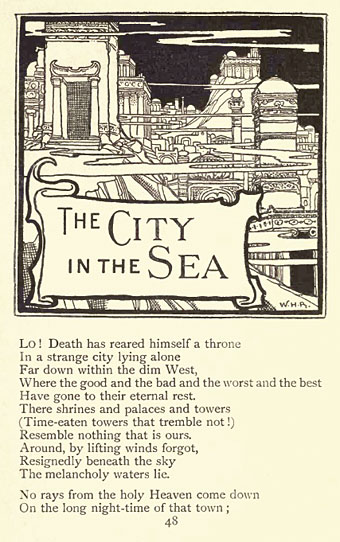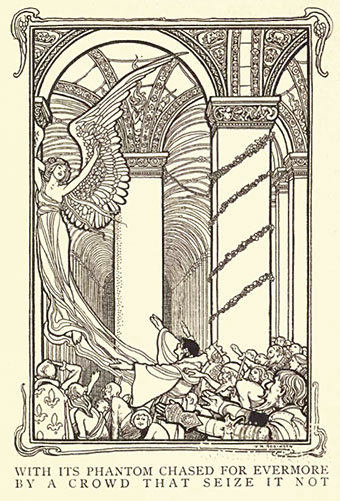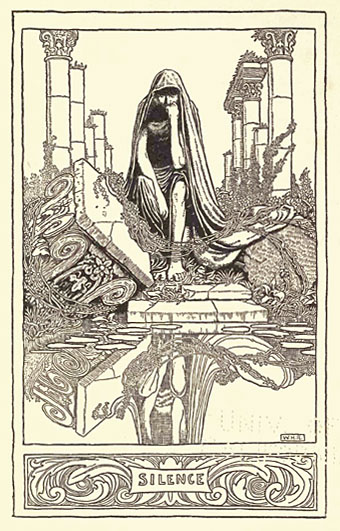Another gem from the Internet Archive collection of scans from North American libraries. This edition of the poems of Edgar Allan Poe from 1900 was illustrated by William Heath Robinson (1872–1944), an artist whose later drawings of quirky inventions have completely overshadowed his earlier books, as well as the work of his equally talented older brother, Charles. I’m probably in the minority in preferring Heath Robinson’s book illustration to his later works, and this edition of Poe is a superb example of his mastery of line and space. It can’t compete with Harry Clarke’s Poe, of course, but then neither can anything else. WHR wasn’t really suited to the darker side of literature but he acquits himself here far better than Arthur Rackham did when he attempted his own Poe collection in 1935.
• Bud Plant’s W Heath Robinson page
• W. Heath Robinson’s fairy tale illustrations
The Conqueror Worm.
Elsewhere on { feuilleton }
• The illustrators archive




Wow. I love this!
Gads, Thom is here! I shouldn’t be surprised, he follows me everywhere… ;)
I wanted to comment about the illustration in this post. I’m not sure I should without more thought and self-analysis, which would likely generate a long post of my, but I also didn’t want the fleeting thought to perish either. So this is like a place holder (and bookmarked too!) So…
Does anyone else find such illustrative style, and in fact most illustration in fairy tales etc., very erotic? I mean it’s not sexual, and the stories aren’t (necessarily) so either, but something in the epic nature, the good v. evil, combined with the fantastic puts me in such a frame of mind…
Of course, it call could just be me.
I’m used to that.
Well I found your blog via Fabulon, so it’s all a big incestuous circle…
I think the quality of the line in some illustration of this period is certainly erotic, those sinuous Art Nouveau curves. Charles Robinson was a good exponent of that and I’ll be doing a post about his work shortly.
Completely erotic. An opium dream…